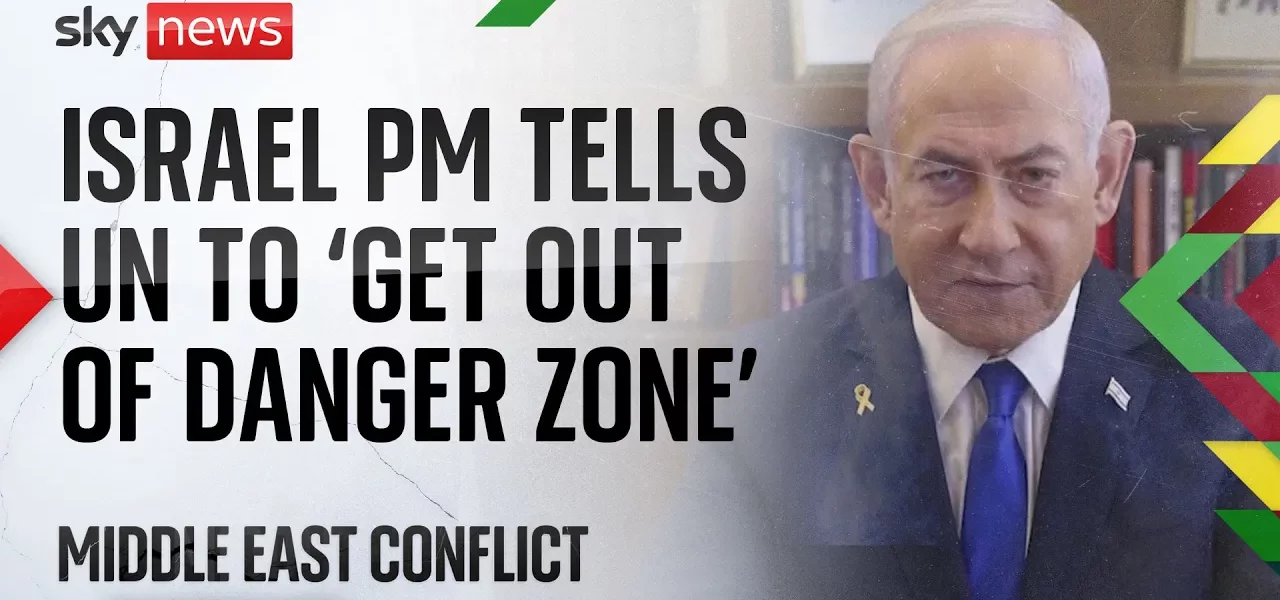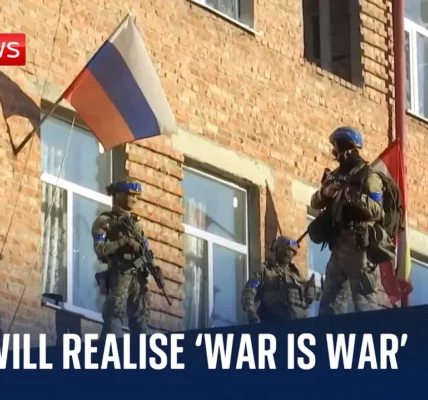Israeli Soldiers Cross into Lebanon: UN Peacekeepers in Danger

This article provides a comprehensive overview of the recent incidents involving Israeli soldiers crossing into Lebanon, the implications for UN peacekeeping forces, and the escalating tensions in the region. It examines the statements from Israeli Prime Minister Benjamin Netanyahu and the response from UN officials, along with the broader context of Middle Eastern geopolitics.
Introduction
The situation in the Middle East remains tense as reports indicate that a significant number of Israeli soldiers have crossed the blue demarcation line into Lebanon. This act has been labeled a “shocking violation” by the UN peacekeeping forces stationed in Lebanon. The context of these events involves ongoing conflicts between Israel and Hezbollah, and raises questions regarding the effectiveness and safety of UN peacekeepers in the area. In this article, we will explore the ramifications of these events, the responses from key figures, and the potential consequences for regional stability.
Recent Incidents Involving Israeli Forces
In recent weeks, tensions have escalated with multiple incidents involving Israeli soldiers and UN peacekeeping forces. On Thursday, an alarming event saw a direct tank round fired at a UNIFIL watchtower in Nakura, resulting in injuries to two Indonesian peacekeepers. The following day, another incident left two Sri Lankan soldiers injured, underscoring the dangerous environment peacekeepers are operating in.
Details of the Incidents
- First Incident: Tank round fired at UNIFIL base in Nakura.
- Second Incident: Two Sri Lankan soldiers injured from another attack.
- Additional Incidents: Peacekeepers treated for respiratory issues due to smoke rounds.
- Recent Breach: Israeli tanks reportedly entered a UN compound.
Israeli Government’s Stance
Israeli Prime Minister Benjamin Netanyahu has made strong statements regarding the presence of UN peacekeepers in Lebanon. He has called for the removal of UNIFIL from Hezbollah strongholds, arguing that their presence endangers both the peacekeepers and Israeli soldiers. Netanyahu’s remarks highlight Israel’s growing frustration with the UN’s perceived inability to maintain peace in the region.
Netanyahu’s Appeals to the UN
- Netanyahu urged the UN Secretary-General to take immediate action.
- He emphasized that UNIFIL’s presence is being exploited by Hezbollah.
- He described UN peacekeepers as “hostages” in dangerous areas.
UN Peacekeeping Forces’ Response
The UN peacekeeping forces, known as UNIFIL, have maintained that they are present in Lebanon under a mandate from the UN Security Council. They argue that their role is critical for maintaining peace and stability in the region, and they cannot withdraw without a change in their mandate, which currently shows no signs of happening.
UNIFIL’s Position on Recent Attacks
UN officials have expressed concerns that they are being deliberately targeted by Israeli forces. This situation poses significant risks not only to the peacekeepers but also to the broader peace efforts in the region.
The Broader Context of Middle Eastern Geopolitics
The tension between Israel and Hezbollah is not just a matter of military incidents; it is deeply rooted in the geopolitical landscape of the Middle East. The presence of Iranian influence in Lebanon and the ongoing conflict in Syria further complicate the dynamics at play.
International Reactions
Responses from the international community have been varied, with countries like France and Italy expressing concern over Israel’s actions. The United States has also been involved, offering military support to Israel while simultaneously urging restraint.
Conclusion
The recent violations involving Israeli soldiers crossing into Lebanon signify a critical moment in the ongoing conflict in the region. With the safety of UN peacekeepers at stake, it is imperative for the international community to take action to prevent further escalation. As tensions rise, the world watches closely to see how this situation will unfold. It is crucial for peace efforts to be revitalized to ensure the safety of both military personnel and civilians in the area. We encourage readers to stay informed and engage in discussions about peacekeeping and international relations.
“`




